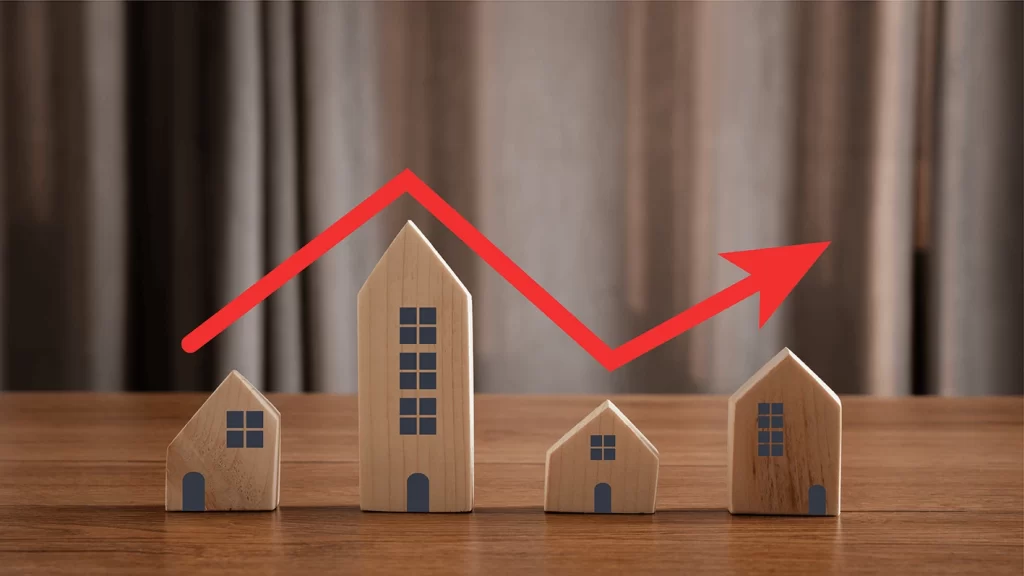How Does Zillow Calculate Home Value? Here’s What You Should Know
When buying or selling a home, one of the first things people do is look up the property on Zillow to get a sense of its value. But how does Zillow calculate home value—and more importantly, how accurate is it? If you’ve ever wondered how Zillow’s Zestimate is generated, whether it’s reliable in today’s market, and how professionals can help you make better-informed decisions, you’re in the right place.
This article dives deep into the algorithm behind the Zestimate, shares lesser-known insights, and offers practical advice for those in the real estate market, especially individuals interested in Mississauga homes and working with a Real Estate Agent Erindale expert to achieve their goals.
What Is the Zillow Zestimate?

Zillow’s Zestimate is an automated home valuation tool designed to give users a quick estimate of a property’s market value. According to Zillow, the Zestimate is calculated using a proprietary algorithm that incorporates public data, MLS data, user-submitted information, and machine learning techniques. It’s designed to be a “starting point,” not an official appraisal.
As of 2024, Zillow claims that the nationwide median error rate for Zestimates of on-market homes is 1.9%, while off-market properties have a higher error rate of 6.9%.
However, what’s behind these numbers is far more complex—and sometimes, misunderstood.
How Zillow’s Algorithm Actually Works (More Than You Think)
Zillow’s Zestimate uses a complex, multi-layered model, including:
1. Comparable Sales (Comps)
Like professional appraisers, Zillow analyzes recent sales of similar homes in the area. However, the algorithm doesn’t always prioritize the most relevant comps. In fact, it may use data from slightly dissimilar homes due to incomplete property records.
2. Public and User-Submitted Data
Tax assessments, lot sizes, square footage, number of rooms, renovations (if submitted), and more are all considered. But here’s where it gets tricky—outdated or incorrect public records can distort the valuation, especially if homeowners haven’t updated information on renovations.
3. Machine Learning and Predictive Analytics
The Zestimate engine constantly “learns” from new data, using patterns in sale prices, listing trends, regional economic data, and housing inventory to refine its predictions. But machine learning models are only as good as their inputs. They lack the nuance of human judgment, especially when it comes to a home’s condition or unique features.
4. Geographic and Seasonal Trends
Zillow factors in broader market trends, like seasonal fluctuations and local appreciation rates. However, micro-neighborhood differences (e.g., a house on a quiet cul-de-sac vs. a main road) are often missed, which can skew estimates.
What Most Sites Don’t Tell You About Zillow’s Limitations
While many articles highlight Zestimate accuracy or error rates, few discuss the hidden limitations that buyers and sellers must be aware of:
1. Renovation Blind Spots
Unless you manually update your home’s data on Zillow, even a $100,000 kitchen remodel may go unnoticed by the algorithm. This can lead to undervaluation and missed opportunities during listing.
2. Market Velocity Mismatch
In fast-paced markets like Mississauga, Zestimates may lag behind reality. The algorithm may take weeks to catch up with real-time price hikes or drops, leading to pricing inaccuracies that can hurt sellers and mislead buyers.
3. Interior Condition Is Ignored
Zillow doesn’t “see” inside your home. A house that’s been meticulously maintained may be valued the same as one with deferred maintenance, simply because square footage and bed/bath counts match.
4. No Consideration for “Unquantifiable” Factors
Curb appeal, views, sunlight exposure, custom finishes, and even buyer emotion don’t show up in the Zestimate. These are critical elements that real estate professionals can evaluate—something Zillow can’t do.
5. Discrepancies Between Zestimates and Listing Prices
A 2022 study by the Journal of Real Estate Finance and Economics found that homes with Zestimates that were significantly lower than the list price stayed on the market longer, as buyers questioned the discrepancy. 2
Zillow vs. Professional Appraisals vs. Realtor Expertise
It’s important to note that Zillow is not trying to replace professional appraisers or real estate agents. In fact, Zillow’s own terms of use state that the Zestimate “is not an appraisal” and should not be used for financing or legal decisions.
Here’s how the Zestimate compares to professional insights:
| Evaluation Method | Pros | Cons |
| Zillow Zestimate | Free, fast, accessible | Incomplete data, no interior view, algorithmic errors |
| Professional Appraisal | Thorough, legally recognized | Costly ($400–$600), takes time |
| Realtor CMA (Comparative Market Analysis) | Local expertise, up-to-date insights, tailored pricing strategy | Subjective, may vary by agent |
In Mississauga’s competitive market, relying solely on Zillow may lead to mispriced listings or missed investment opportunities. This is where a Real Estate Agent Erindale expert comes in—providing hands-on guidance based on real-time data and property-specific nuances.
Case Study: Mississauga Homes and the Zillow Gap
Let’s say two homes in Erindale—both 3-bedroom, 2-bath, 2,000 sq ft properties—appear identical on Zillow. One is listed at $1,100,000, and the other has a Zestimate of $980,000. Buyers may be confused, or worse, assume the seller is overpricing.
But what Zillow doesn’t show is that:
- The higher-priced home has a finished basement apartment that generates $1,500/month in rental income.
- It also backs onto a ravine, adding privacy and scenic views.
- It was fully renovated in 2023, while the lower-Zestimate home hasn’t been updated in over a decade.
These differences are invisible to Zillow—but obvious to a Real Estate Agent Erindale professional who knows the neighborhood intimately.
Zillow Is a Tool—Not a Decision Maker
Zillow is a powerful tool when used correctly. It’s a great place to start your research, track trends, and explore comparable homes. But when it comes to real estate decisions—especially in high-demand areas like Mississauga—nothing beats local expertise.
If you’re thinking about buying or selling, it’s critical to partner with someone who can interpret Zestimate data in context. Relying solely on an algorithm could cost you tens of thousands of dollars.
Final Thoughts

Zillow calculates home value using a combination of comps, public data, machine learning, and broad market trends. While the Zestimate can be a useful starting point, it is far from perfect. It fails to consider renovation history, interior condition, and many of the unique features that truly determine a home’s value, especially in dynamic markets like Mississauga.
For those serious about making smart real estate decisions, Zillow is a tool—but not a substitute for professional guidance.
Ready to move beyond automated guesses and get real, tailored insights into your home’s value or future investment? Don’t let a Zestimate dictate your next big move—talk to a real estate professional who knows Mississauga inside and out.
Our Real Estate Agent Erindale expert is here to help you navigate pricing, negotiations, and market timing with confidence. Whether you’re buying, selling, or just exploring your options, we’ll help you make smarter, more profitable decisions.
Contact us today and let’s get started on finding (or selling) your perfect Mississauga home.
Follow our social media pages below:
Find out more articles that can help you below:
How Much Does a Swimming Pool Add to Home Value

